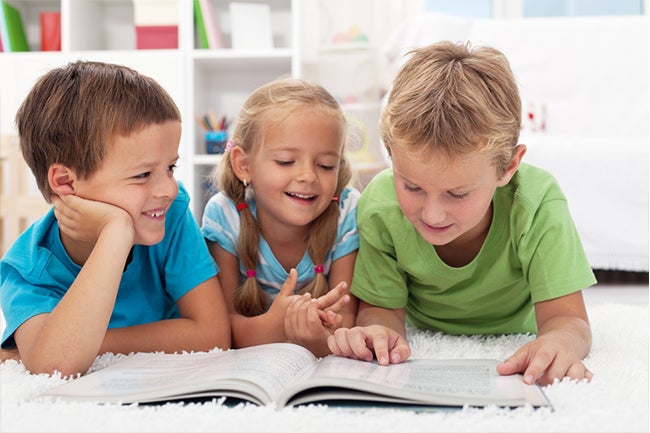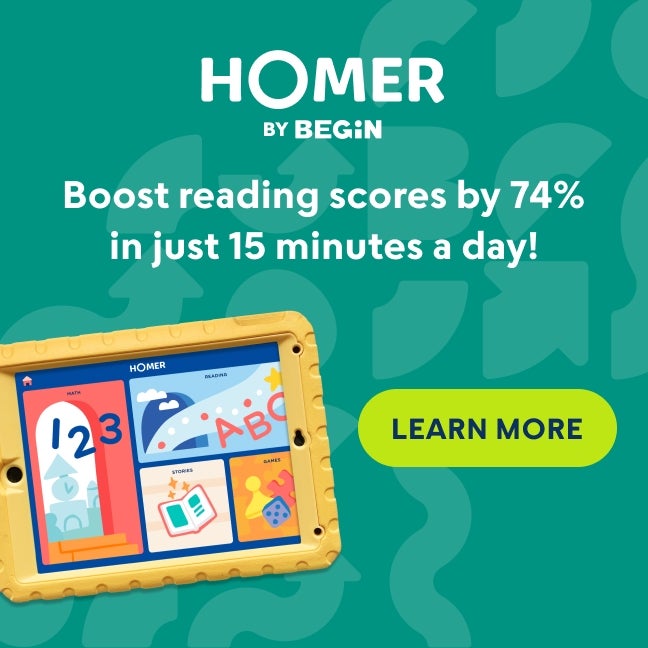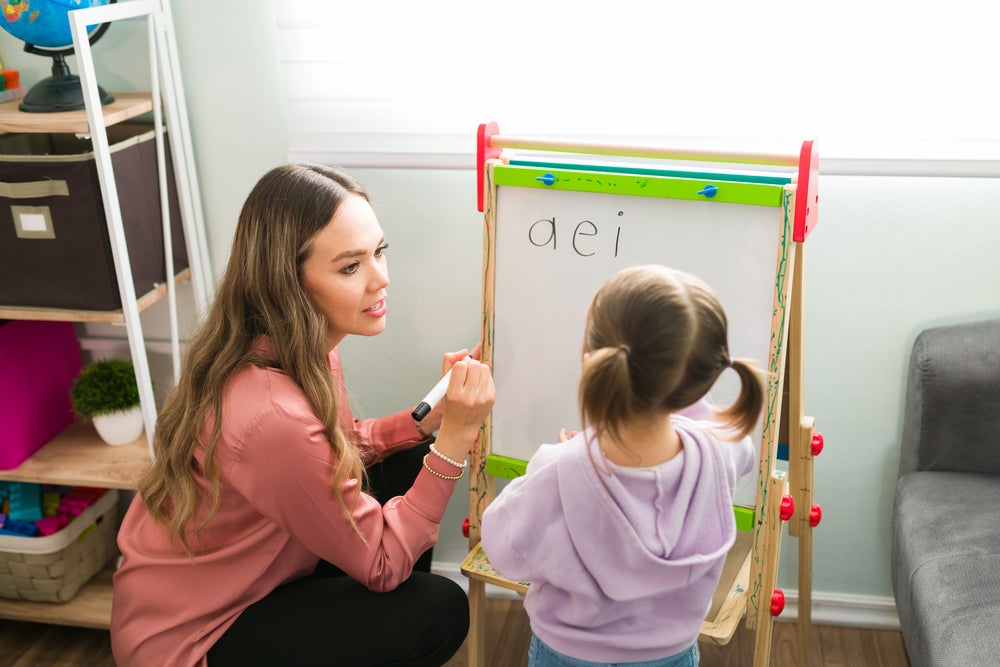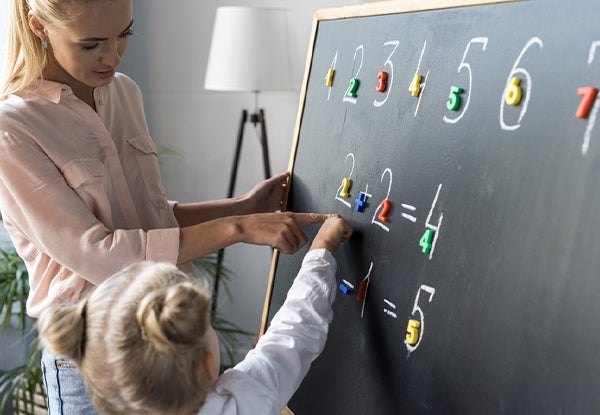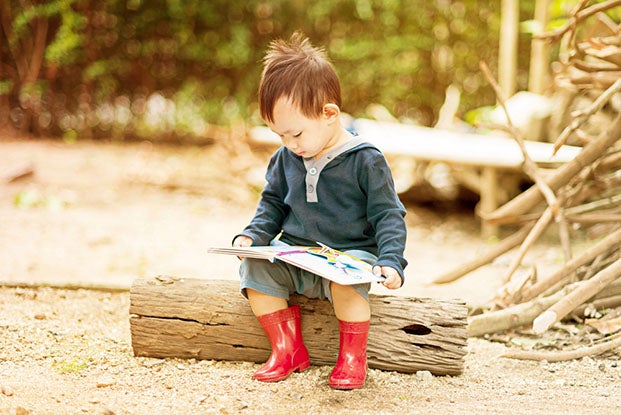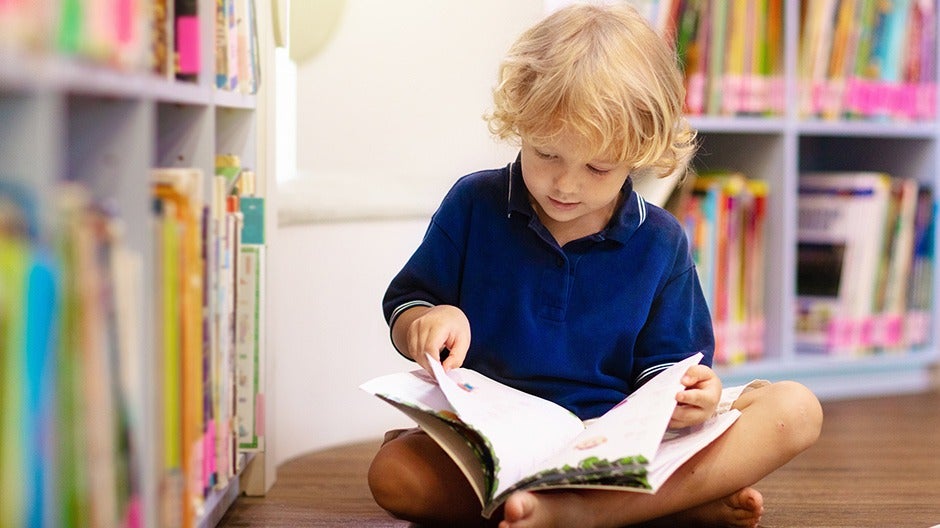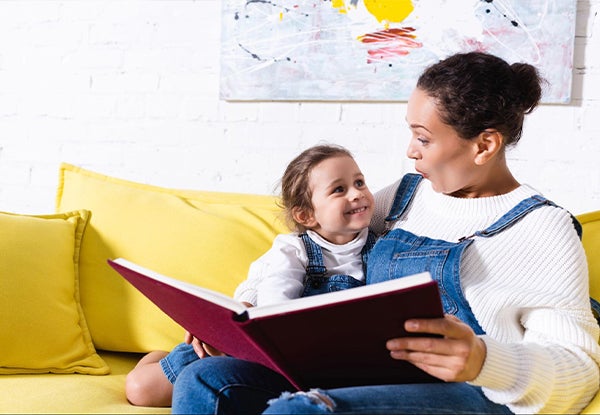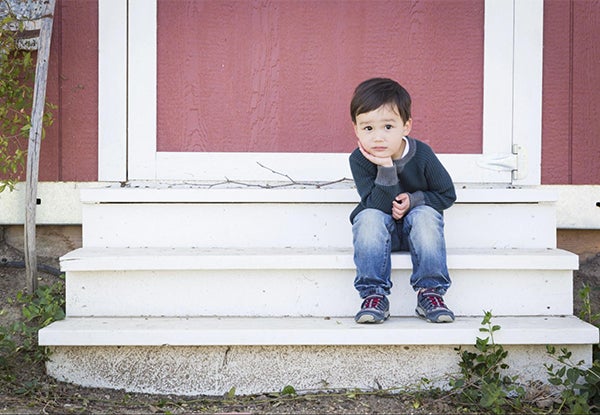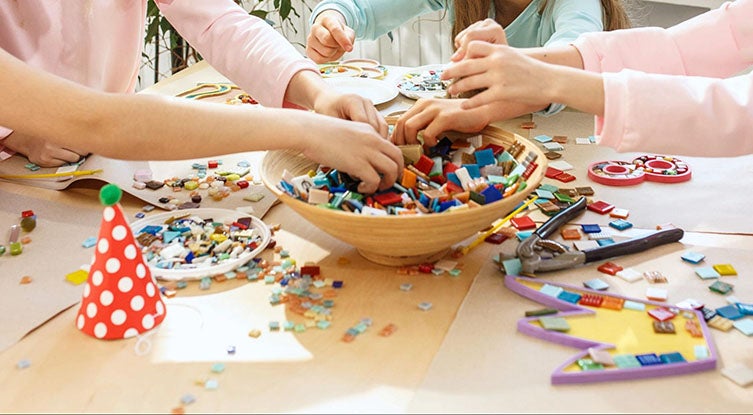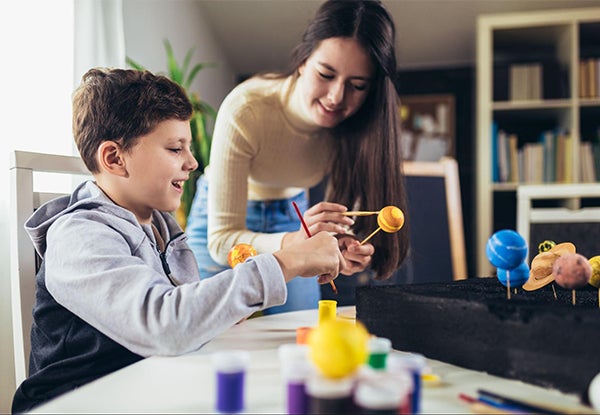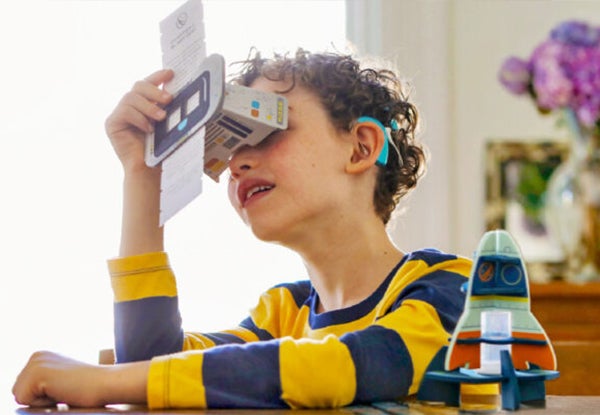Learning to read doesn’t just happen overnight. It’s a hard skill to develop, and that can lead some kids to avoid it. There are plenty of simple things you can do to help your child learn to read—but first and foremost, we want to help your child think of reading as fun, relaxing, and rewarding.
The Short Cut
- Reading is a Core Skill, one of the 5 C’s that help kids thrive in school and life
- Strong readers have an easier time in school, and reading helps them unlock the ability to explore and engage with the world in new ways
- Kids become stronger readers when they see reading as enjoyable and fun
- Parents can help by talking and reading to their kids frequently, making reading into a game, and making reading a special part of the day
To help make learning to read enjoyable, consider treating reading aloud with your little one as bonding time or a special activity, rather than a school lesson. Reading confidence comes with time and practice. It’s OK if your child learns differently than their friends—that’s completely normal!
With that said, here are some bonus tips to help boost your child’s confidence and encourage them to read.
Tips for Boosting Your Child’s Reading Confidence
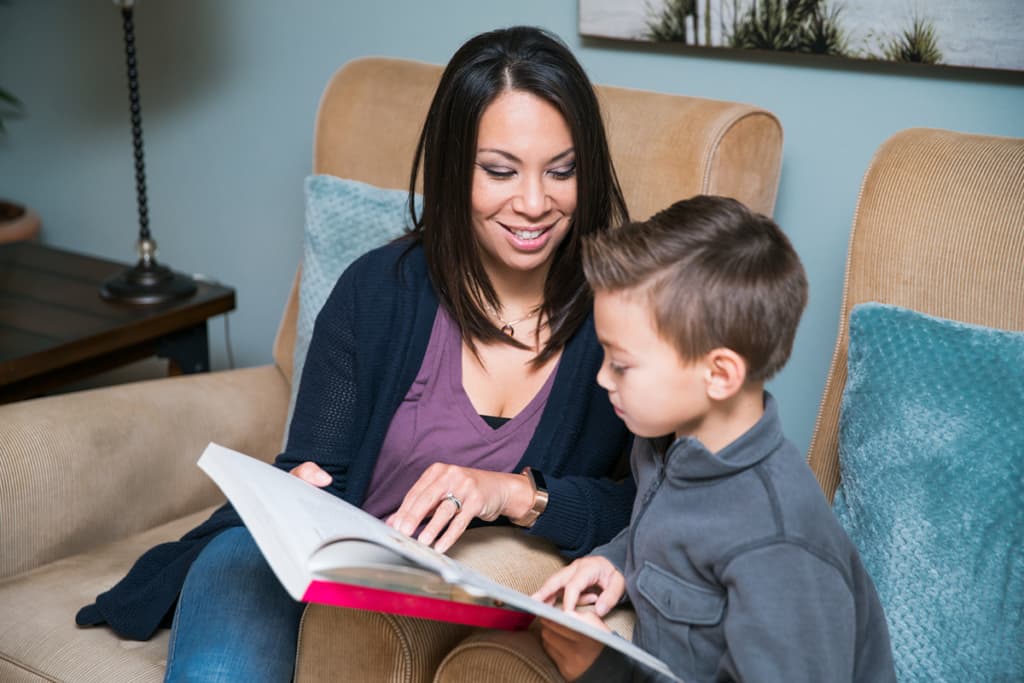
Read, Talk, and Sing to Your Baby
If you want to get a head start on encouraging a love of reading in your child, talk and read to them as much as possible when they’re a baby, and don’t stop—even after your child is an independent reader!
While you’re reading, you can react to illustrations and repeat words for an even bigger impact. Although your baby can’t speak yet, we promise it’s worth it!
Singing lullabies and nursery rhymes is also a great way to expose babies, toddlers, and preschool children to words.
Show Your Child That Words Are Everywhere
Once your child has moved into the toddler stage—and as they continue to grow—point out letters and numbers to them as you walk along in everyday life. They will begin to take notice (and probably want to read themselves!).
You can even make it fun by turning it into a game once your little one starts learning sight words (“I spy with my little eye the word ‘red.’”).
Talk In Order To Read
It’s simple, but talking to your child helps to improve their vocabulary and knowledge base. If you’re looking for ways to talk to your child more, here are some ideas:
- Ask specific questions (such as “What did you do at school today?”)
- Explain what you’re doing while cooking
- Tell them about a favorite memory from your own childhood
Conversations help children with speaking and listening skills, and familiarity with new words and subjects will help when they read books. As a bonus, having conversations with your child helps you connect as a family!
Take Turns Reading
It’s important for kids to know what fluent reading sounds like. Listening to you can be a huge help!
If you’d like to try this during storytime, take turns reading pages. (You read a page, then your child reads a page.) You can customize the split depending on your child’s energy, reading level, or how much time you have.
Switching on and off will give them a mental break between pages and keep them excited about reading with you!
4 Fun Activities to Develop Reading Skills
In addition to the tips above, here are some fun activities to try at home with your young learner as they develop their reading skills.
1. Sight Word Scavenger Hunt

Sight words are words that appear often in text. These are words such as the, on, have, was, what, etc. These words can be tricky because they aren’t easy to sound out or decode, so we need to memorize them or recognize them by sight.
Since they are seen so frequently, helping children get comfortable with sight words allows them to read more confidently and fluently.
To practice this skill, one of our favorite sight word games is Sight Word Scavenger Hunt. All you need for this game is a marker, index cards, and a sheet of paper.
Start by writing down ten sight words (one on each card), and then hide these cards in places around the house. (Be sure to choose spots familiar to your child.)
The goal of this game is simple: Have your child find all the cards by listening to clues you’ve written down on your sheet of paper.
For example:
- I climbed ____ the chair — On!
- What word rhymes with buzz? — Was!
As you call out each clue, your child will search for the sight word that matches. You can also write the sight words on a separate piece of paper as a reference for them if needed.
And to make things even more interesting, feel free to add a timer into the game and see how fast they can find the cards!
2. Become an Author
Children are natural storytellers. They want to share their adventures, ideas, and thoughts. In fact, it is sometimes hard to get them to stop talking!
You can take advantage of this love of oral language to make a bridge toward written language. How? Write a book together.
All you’ll need is an empty booklet (this can be blank pieces of paper stapled together), a pencil, and some crayons. Start writing the story by asking your child to describe something meaningful to them, such as what they did at school or while visiting their grandparents.
As your child narrates their story, write down one to two sentences on each page. Keep in mind that you don’t actually need to write the exact words. It is fine to write a sentence that expresses the main parts of your child’s dictation.
You might need to ask prompting questions to give the story more details, such as:
- Was it a hot or cold day?
- Was your grandma wearing a sweater? What color was it?
- What did you have for lunch on that day?
Once the story is complete, your child can add some illustrations to help bring it to life. And just like that, you have a homemade storybook that you can enjoy reading together!
3. What Starts with…

Learning the alphabet and letter-sound connections is an essential step to reading fluently. You can help your child work on these skills by playing a guessing game that focuses on all their favorite words.
What letter does balloon start with? How about pizza?
When your child guesses correctly, encourage them to come up with more words that start with the same letter. For example, “Balloon starts with a b! So does basket, butterfly, baby, bubbles, buttons, and ball!”
This repetition will help reinforce the letter-sound connections that play an important role in reading (and writing).
4. Pick the Word
This game also focuses on sight words. To get started, write six sight words down on index cards, one word per card. On a separate sheet of paper, list the same words twice. One list will be for you and the other for your child.
Next, place the index cards with the words facing down on a flat surface, like a table. Begin playing by picking a word from your list. Then, flip four cards over so the words are facing up. If you flip over the word you selected, cross it off your list and flip the other cards back over.
If you don’t find the word you were looking for, you’ll need to wait for your next turn to try to find another one. Remember to mix the cards up before the next player starts.
The first player to cross off four words from their list wins!
This is a great game for continued sight word exposure. The more familiar your child gets with them, the more confident they’ll be while reading.
Follow Your Child’s Lead
As your child learns to read, remember that they’re working hard and try to meet them where they are. If they want to read the same book over and over, that’s great. If they want to check out six books from the library about their favorite TV show or video game (and ask you to read all six to them later), that’s good news!
Encouraging Literacy with Begin
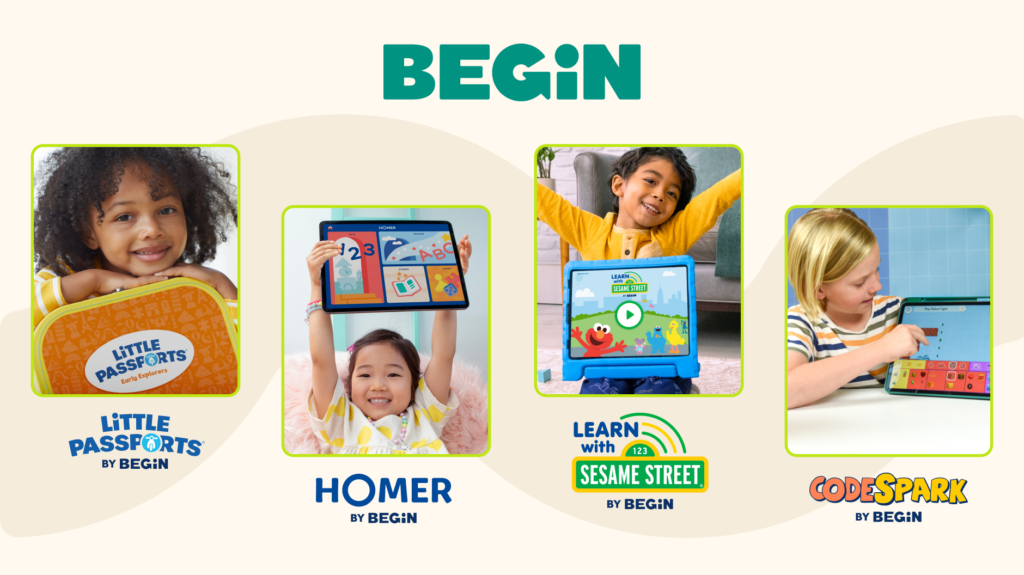
Kids who love reading become stronger readers, and stronger readers have an easier time in school.
Begin can help!
Our age- and stage-matched learning membership helps kids develop the skills that matter most—including literacy. Take our online quiz to discover which membership stage can help your family today!
Or try our award-winning HOMER app. Just 15 minutes a day has been proven to raise early reading scores by 74%!
